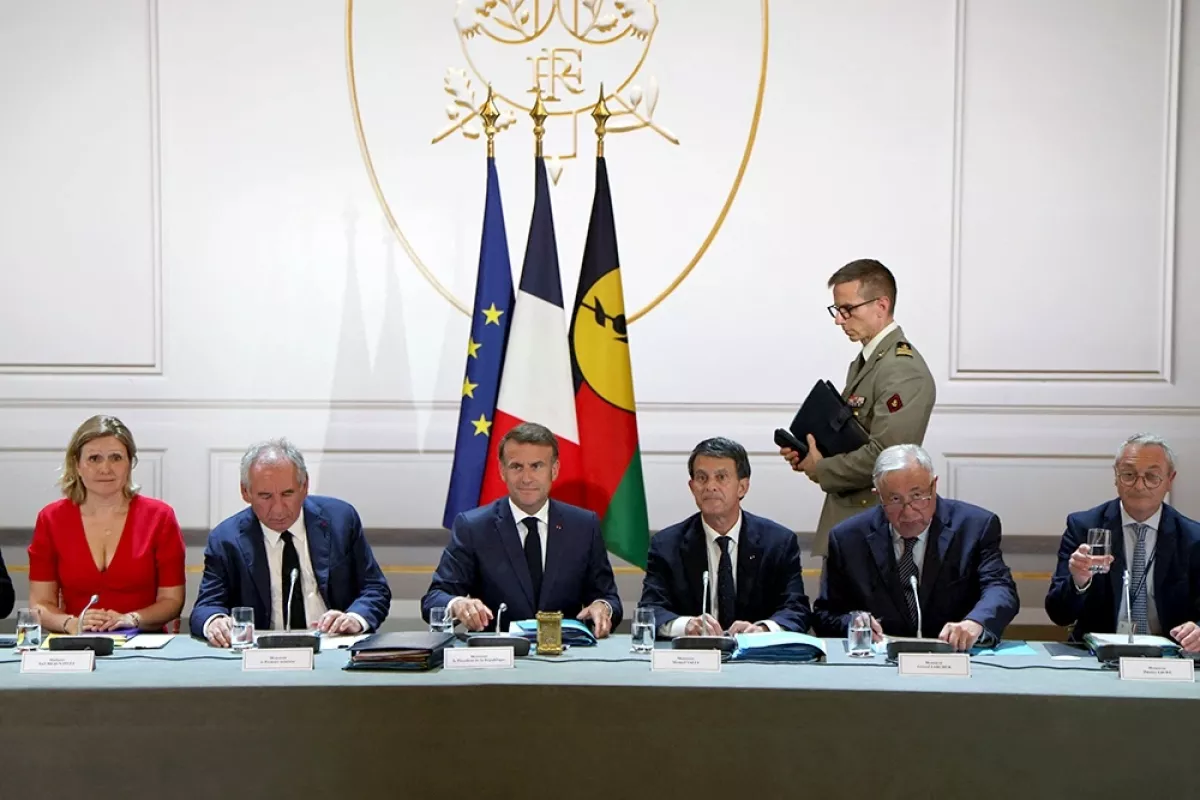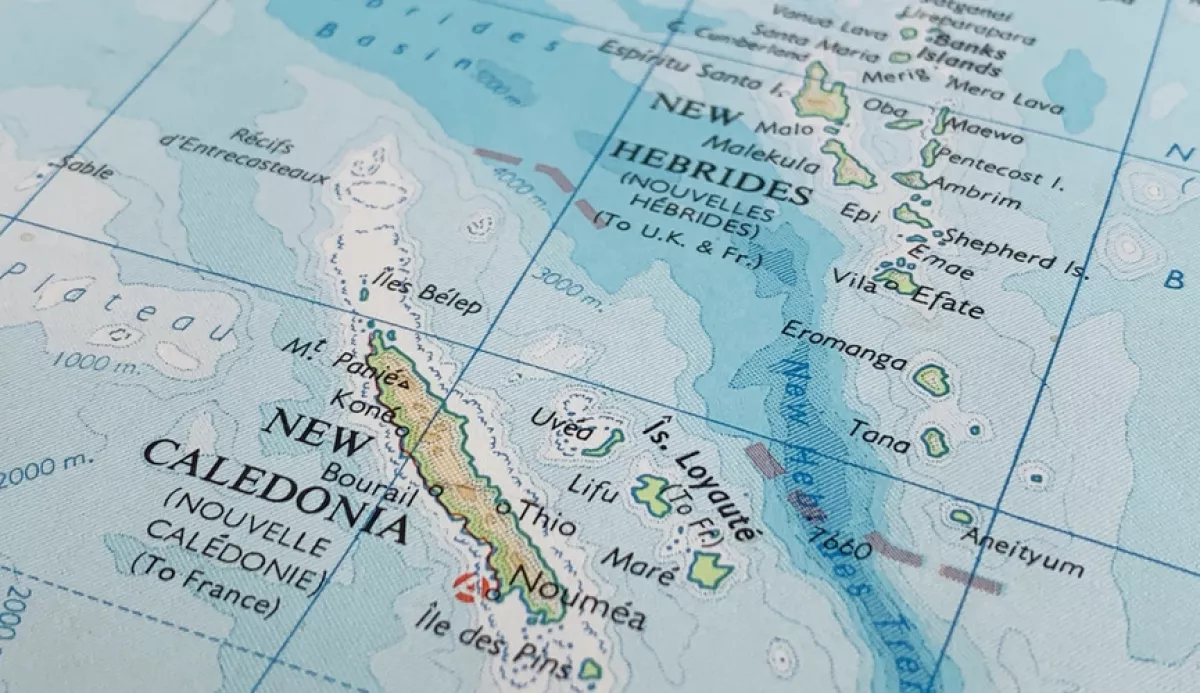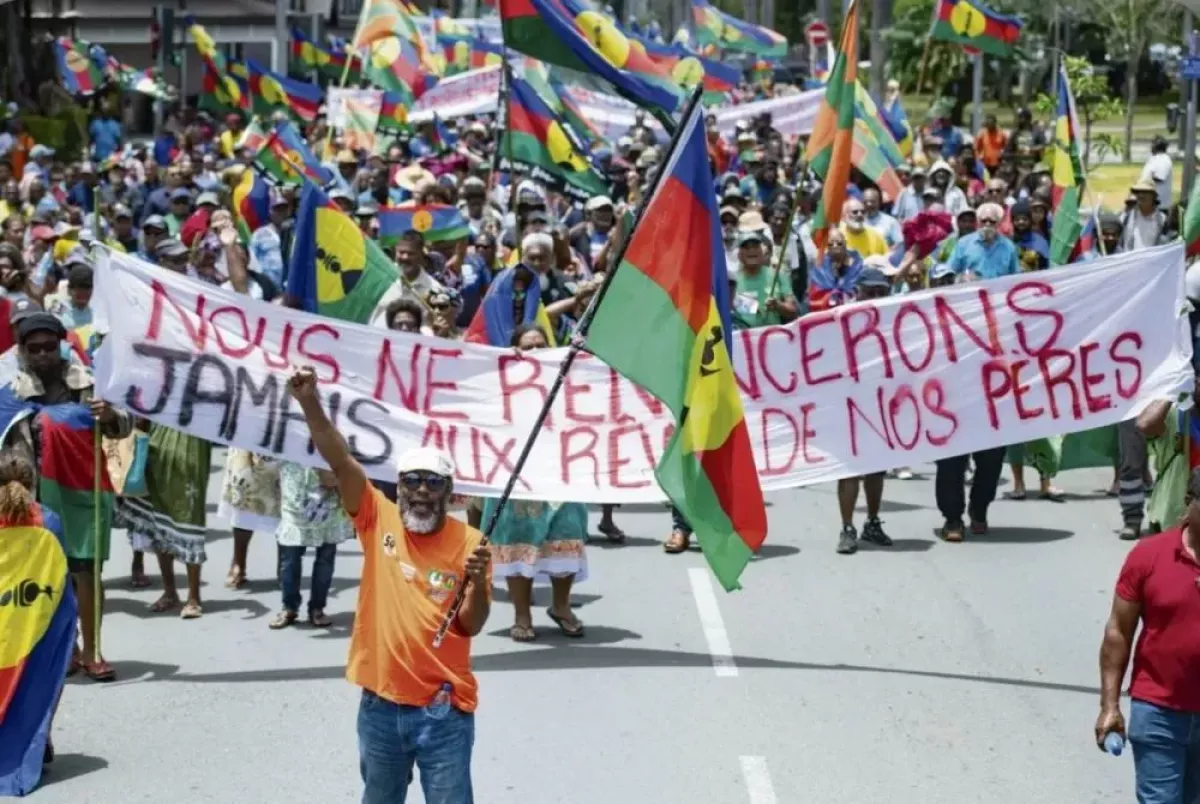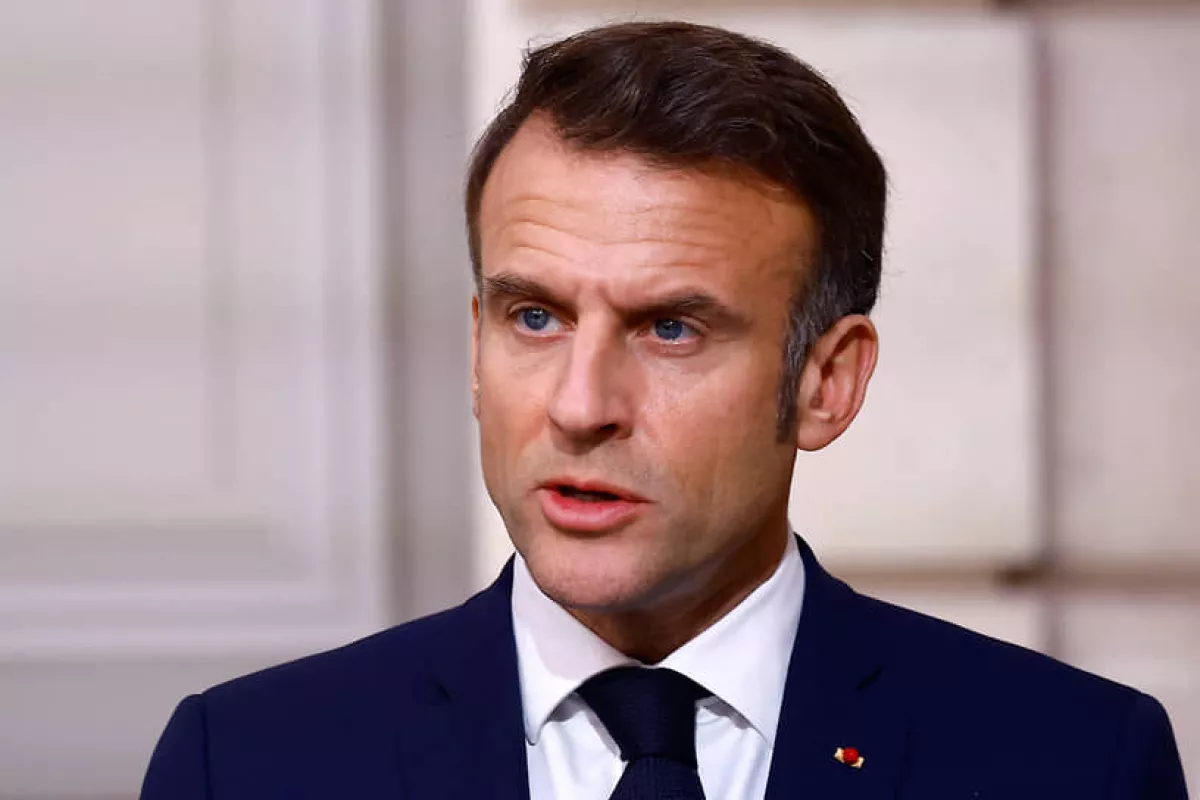Reboot in the ocean Paris and Nouméa agree on new terms
So, the nearly two-week-long negotiations (which we have already reported on) in the Paris suburb of Bougival between the French government, New Caledonian loyalists, and independence supporters have produced a result.

On July 12, the French government and delegates from New Caledonia signed a draft agreement, according to which this "overseas territory" will be granted the status of a state, but… while remaining part of the French Republic. This refers to a sui generis state, in other words, a unique kind of entity. The granting of state status to New Caledonia must now be enshrined in the French Constitution. For this purpose, the French government commits to presenting a bill to amend the Basic Law.
The French Minister for Overseas Territories, Manuel Valls, who signed the agreement, called it historic, welcoming the "bold and responsible choice." This is an "intelligent compromise" that preserves the link between Paris and Nouméa but provides "greater sovereignty for Caledonia" and a basis for "political, economic, and social reconstruction" necessary "after the 2024 unrest," the minister emphasised. However, in his words, "nothing is decided yet," since it will be necessary to "convince" the people of New Caledonia to support the agreement — as it still must be approved by referendum in New Caledonia.
French President Emmanuel Macron, who took part in the opening of the conference, also described the agreement as “historic” and welcomed it. “Now is the time for respect, stability, and the unity of goodwill to build a common future,” he wrote.
The draft agreement is filled with provisions outlining what the new state can and cannot do. In brief, the situation is as follows.
The State of New Caledonia will likely be recognised by the international community. According to the agreement, authority over international relations will transfer to Nouméa without any preconditions.
However, powers related to defence, security, justice, and currency will remain with Paris for the time being. Yet, the 56-seat Congress of New Caledonia, with a majority of 36 votes, can demand that one of these prerogatives be transferred to the archipelago. In that case, a “joint project” between Paris and Nouméa will be launched, which will be submitted for “consultation” with the people of New Caledonia.

Based on a set of criteria, citizenship of New Caledonia will be established. The text states that “residents of New Caledonia will have dual citizenship — French and New Caledonian” and “will retain European citizenship.” Renouncing French citizenship will also mean renouncing New Caledonian citizenship.
If the agreement is ultimately approved, New Caledonia will be able to change the name of its state, its flag, anthem, and motto, and redistribute powers among the existing institutions in the country.
The agreement also includes the gradual cancellation of New Caledonia’s debts and support for the nickel industry.
Despite the many progressive points outlined above, Paris appears to have succeeded in pushing through its vision of the electoral law in the archipelago. It was precisely the plans to reform this law that sparked protests among the Kanak population in 2024 — at that time, the French government announced its intention to grant voting rights in local elections to everyone who has lived in New Caledonia for more than 10 years, including new settlers from France.
Activists from the independence movement opposed this. As a result, the reform approved by the parliament was repealed. The draft agreement signed in Bougival states that in the next local elections in 2026, 12,000 people born in New Caledonia—who had no voting rights following the "freezing" of the electoral rolls in 2009—as well as those who have lived in New Caledonia for more than 15 years, will be allowed to vote. In subsequent elections, all people holding New Caledonian citizenship (which can be requested, including after 10 years of permanent residence on the archipelago) will be eligible to vote. This effectively strengthens the influence of opponents of independence.
It is clear that Paris is counting on a gradual demographic assimilation of the islands—that new settlers and their descendants, once allowed to vote, will be able to determine the future of the archipelago. Most likely, this issue will become the main point of intrigue in the upcoming referendum on the islands.

However, even if the draft agreement is approved by the people of New Caledonia, it is possible that tensions between the Kanaks and the settlers will intensify, and the people of New Caledonia may wish to revisit the terms of the agreement, demanding full independence.
A state within another state is, of course, quite an oxymoron. It is no coincidence that the document has sparked mixed reactions in both political camps in New Caledonia, as well as within the International Decolonisation Front. In some respects, the loyalists have gained, and in others, the independence supporters have. Overall, however, it can be said that this compromise is the best the Kanak people could have hoped for under the current circumstances, where Paris retains the full arsenal of military, police, economic, and financial power over the archipelago. From this perspective, a partial independence seems quite reasonable — despite its drawbacks, it will allow the Kanaks to develop experience in statehood and participation in international relations. It is possible that the new political arrangement will satisfy the Kanaks. In any case, this can be seen as a significant success for their movement.
Moreover, the new “unique status” of New Caledonia could set a precedent for other territories (such as Corsica) that have long sought to change their status. This effectively calls into question the French authorities’ claim about the “inviolability” of the French Constitution.
However the future struggle of the Kanaks for their independence unfolds, there is no denying the facts. One way or another, Paris now recognises New Caledonia as a state, which in itself could lay the groundwork for the development of the islands’ sovereignty in the future. Azerbaijan, with its doctrine of combating neocolonialism and its efforts to internationalise the New Caledonia issue, has played a positive role in this development. This is confirmed by the fact that, amid the unrest on the islands in 2024, Paris found nothing better to do than accuse Azerbaijan of interfering in internal affairs and supporting “Caledonian separatists.”
Of course, Azerbaijan will not impose any vision of the future on the Kanaks. Ultimately, the decision rests with them. However, Baku is always open to acknowledging and broadcasting the aspirations and hopes of the Kanak people to the outside world.

As for Macron—and indeed all future French leaders—it would be wise to exercise great caution in handling the feelings of the so-called overseas territories. The Baku Initiative Group is watching closely.








